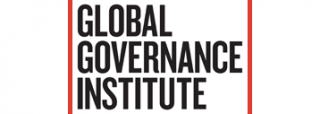Addressing Students’ Lack of Hope for the Future: What Can Educators Do?
2 August 2022
Young people are deeply concerned about global problems such as climate change, conflict and rising inequality, but often lack educational resources and support to help them make their voices heard.

By Madeline Doze, MSc Global Governance and Ethics and GGE Society Representative
How do young people feel about the future? Do they think they can make a difference? Can they be a part of the solution?
On June 22, 2022 UCL’s Global Governance and Ethics Society with the support of the Global Governance Institute hosted an event to explore answers to these pressing questions. ‘UCL Youth Global Governance Forum: An Exploration of the Possible’ was organized to collaborate with A-level and undergraduate students in exploring the realities of global governance and to gain their perspectives on possible global futures. Organized by students from the UCL Global Governance and Ethics MSc programme at UCL, the event was premised on the conviction that the voice of young adults in global politics matters and is too often marginalized both in academic and policy discussions. It is, after all, the younger generation who will inherit the consequences of the political decisions made today and who are central to achieving lasting intergenerational change.
We are all facing what can often feel like an overwhelming global future, encountering issues of such scale, scope and complexity that history provides little precedent for the challenges that we face. Climate scientists’ warnings that we are running out of time in our attempts to prevent catastrophic global heating take place against a backdrop of resurgent nationalist militarism and ever more alarming levels of global inequality. To put it bluntly, for many young people the world that they are inheriting is an unsettling, scary place. The convenors of the event were keen to support teenagers and young adults to explore how they feel about entering this world and what they can do to make a difference. The answers we received gave us an insight into how educators might better engage students from diverse backgrounds and across generational divides in discussing challenging global issues and the supportive roles that we are all called to play in responding to our shared predicament.
As a thought experiment, the participating young people were asked what global-level problem they would solve if they had $10 billion to spend. In response, students mostly replied with projects focused on Africa and the Middle East. Global inequality emerged as a huge issue for students, especially in relation to the legacies of colonization. Reflecting the complexity of the issues at hand, students also noted how entrenched inequalities would serve to unjustly compound the severity of early onset climate impacts for many people living in low-income and environmentally vulnerable countries. For many students this was not just an ‘academic’ discussion. One student expressed her fears over climate impacts in Bangladesh, her family’s home country. Bangladesh is facing terrible flooding due to man-made climate change and saddled with enormous external debts, in an echo of its colonial past, has precious few public sector resources to mitigate the impacts. “It is unfair that a country that did not contribute as much to climate change has to face the effects of it with no help,” the student said.

In regard to learning about global issues and governance, students drawing upon their own experience in the UK felt that social and economic inequality is perhaps the major barrier to education. Students felt that educational institutions largely ignore global politics and focus excessively on national issues, resulting in gaps in their knowledge and limited understanding of how the power of the global impacts their lives. Students also felt that there is a significant gap in access to education in the UK, meaning that students from privileged backgrounds are generally more educated on global issues and less privileged students will go to institutions that do not have the resources to fund classes that stray beyond the core subjects required for assessments and vocational pathways.
When it comes to the political situation at the national and international level, sadly most students classified local and global political leaders as, at best, disinterested in their views, and, at worst, corrupt. This lack of meaningful representation weighed heavily on the conversation, with few of the students feeling empowered to make a difference and a general sense that the issues they really care about are being ignored. As the convenors of the event, we believe this situation must change. One way of facilitating that change is for institutions like UCL to support more initiatives such as this one which provide a creative and supportive space for younger students to consider the art of the possible. These initiatives should prioritize schools that do not have the resources to provide these services themselves. We hope that the success of this first youth forum will encourage UCL to continue to support such events into the future and expand it to benefit more young people in the years to come.
 Close
Close


